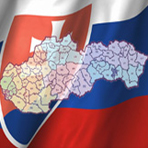Nepotism as a form of patronage or favouritism
Nepotism is one specific form of a conflict-of-interest situation. According to Transparency International (2009), Nepotism is a form of favouritism based on acquaintances and family relationships whereby someone in an official position exploits his or her power and authority to provide a job or favour to a family member or friend, even though he or she may not be qualified.
This means that public officials should not use their public position to directly influence or secure benefits relating to human resource management, such as recruitment or promotion, for family members or business associates. For example, a risk of nepotism could arise if your brother-in-law applies for a job in your company and you can make the decisions whether he is hired.
Nepotism can have negative impacts on the public service
Nepotism in the public service can
- reduce efficiency and productivity: When a person is selected for a position on the basis of connections rather than credentials and experience, the service the person renders may be less efficient and of lower quality. Incompetent, but well connected, employees may also be more difficult to dismiss.
- lower ethical standards in the public sector: By granting unfair advantages and creating an environment in which unethical behaviour is accepted.
- undermine trust: By undercutting the openness and merit-based criteria of hiring and contracting process trust is undermined.
Averting the risk of nepotism
Nepotism can be regulated through anti-nepotism rules or by incorporating anti-nepotism provisions in conflict-of-interest laws or policies. The laws or provisions either ban the hiring of relatives or friends absolutely or focus on establishing a merit-based and objective hiring system by requiring full disclosure of relationships between applicants and employees.
To avoid any appearance or actual nepotism, public officials should completely remove themselves from participating in any way in the hiring process, if one of their family members is competing for a public position. The public official or employee may not in any way use his or her position to influence anyone to hire a family member into a public position by not participating in any of the following actions:
| Before the hire |
After the hire |
- Signing a contract
- Voting on a contract
- Making recommendations
- Reviewing applications
- Influencing the hiring process
|
- Direct supervision
- Promoting
- Annual review
- Disciplinary action
|
Nepotism prohibition in Slovakia
In Slovakia, it is prohibited to employ any close relatives in mutual direct subordination or superiority of the close relatives or if they would be subjected to the control of the financial operations or the control of the accounting operations by a close relatives. (Act No. 552/2003 Coll., Act No. 55/2017 Coll., Act No. 73/1998 Coll. , etc.).
Key points to remember
- Nepotism is a form of favouritism which can negatively impact on efficiency and morale in the public service and undermine trust
- Nepotism risks can particularly occur during the hiring process, during employment and external dealings, such as contracting or licensing
- Public officials should abstain from making or influencing any decision on the employment of a family member or business associate











